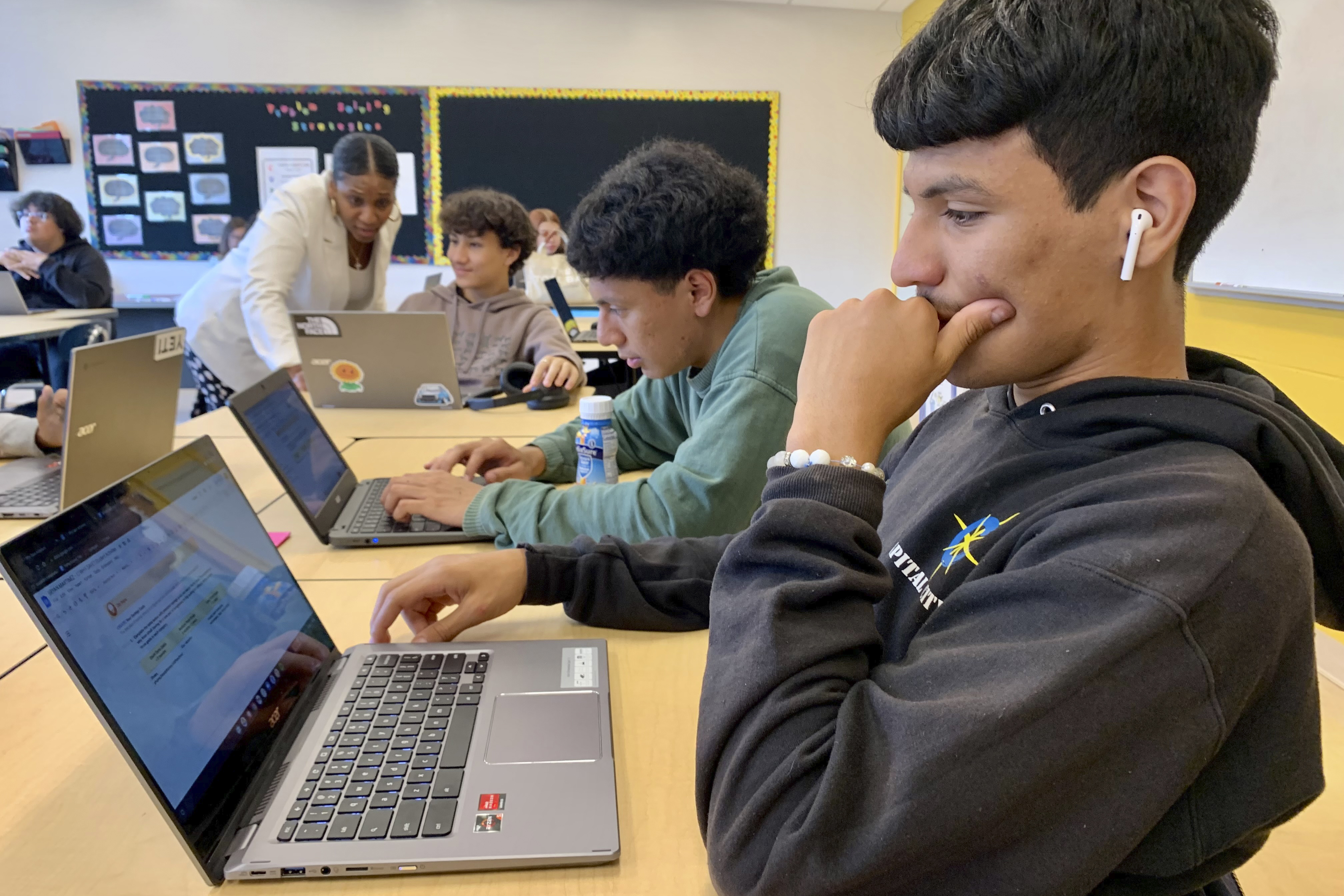
ASK THE EXPERT: HOW EARLY SHOULD YOU START TALKING TO YOUR KIDS ABOUT MONEY?
Most Canadian parents feel they’ve made mistakes with money due to a lack of financial education in their childhood, according to a recent survey from TD Bank Group, and yet 70 per cent don’t feel very prepared to support their kids’ financial literacy at home.
Experts say there are some simple steps you can take to break a generational cycle and help set your children up for financial success.
So, when should you start talking to your kids about money?
“The earlier the better,” Stephanie Dean, manager of financial literacy at RBC Wealth Management, said in a phone interview with Yahoo Finance Canada.
Robin Taub, a chartered professional accountant who wrote a book on youth financial literacy called The Wisest Investment, generally recommends starting to talk to your children about money when they are around age five.
“But if your child is younger and they’re expressing curiosity about money – maybe they’re asking you what you’re doing when you’re tapping your credit card or your phone – that’s an opening to have that conversation with them,” Taub said in an interview with Yahoo Finance Canada.
The key, Taub and Dean agree, is to make sure any conversations are age-appropriate.
“When it’s relevant and it’s interesting, then it’s going to stick,” Dean said.
Focus on the 'five pillars of money'
Taub suggests framing financial lessons around what she calls the “five pillars of money:” earning, saving, spending, sharing, and investing.
“Even young kids will earn when they get money from the tooth fairy, or for birthdays and holidays,” she said. “And then they have to make these choices. You’re going to save some, you’re going to spend some, you’re going to share some, you’re going to invest some.”
Parents can use multi-slotted piggy banks to help kids separate their money into different buckets, Taub says, though she also recommends that kids open up youth bank accounts when they’re in the pre-teen range.
“The banks have created products specifically for that age group,” Taub said.
Look for teachable moments in everyday life
One reason parents don’t talk to their kids about money as much as they should? They get busy.
As a solution, Taub says to use “teachable moments” from your day-to-day lives.
“We’re constantly transacting and interacting with money, so there are always opportunities to just pluck an example out of what you’re doing on a daily basis,” she said.
For young kids, it could be a trip to the grocery store.
“If they point something out, like a treat or a toy, that’s an opportunity to say, ‘OK, we’re not going to buy that today because it’s not in the budget,’” Dean said.
“Or, ‘OK, great, if that’s something you’d like to buy for yourself, then let’s talk about how you’re going to earn and save up your money and we can come back and buy that later.’”
To ensure the message is being received as intended, Dean stresses the importance of having these conversations in “calm moments,” pointing to board games like Monopoly, The Game of Life, and Cashflow for Kids as a way for slightly older children to learn about money in a fun setting.
Model sound financial behaviour for your children
Parents have an important role to play in developing their children's financial habits.
According to a survey from Mydoh, a youth money management app owned by RBC, 65 per cent of Canadian parents feel their relationship with money was impacted by their own parents’ financial habits. Another 46 per cent feel they needed to unlearn unhealthy financial habits inherited from their parents, such as spending more on wants vs. needs.
“Children learn from what they see, and they’re watching how their parents spend money, talk about money, interact with money,” Dean said. “So, this does present an opportunity for parents to intentionally model behaviours they want their kids to learn.”
Taub says some healthy habits to model include living within your means, tracking your spending – all the major banks in Canada have mobile apps with built-in tracking tools, she points out – budgeting, having an emergency fund, and avoiding consumer debt.
She also reminds parents not to forget about their personal values.
“Our values can help us set meaningful and compelling goals,” Taub said. “What are the things that are most important to our family? And are we making financial decisions that are in line with those values?”
Don't shy away from it
Taub and Dean agree that parents should try to avoid overburdening their kids with financial stresses, but that’s not a reason to avoid the topic altogether.
“Parents know their kids best,” Dean said. “They’ll know what they can handle and when. I think we can probably challenge our kids and expect them to rise to the occasion.”
Farhan Devji is a freelance journalist and published author based in Vancouver. You can follow him on Twitter @farhandevji.
2023-11-14T13:59:02Z dg43tfdfdgfd